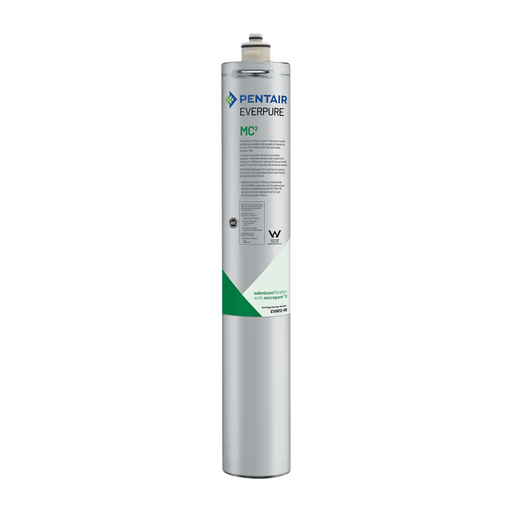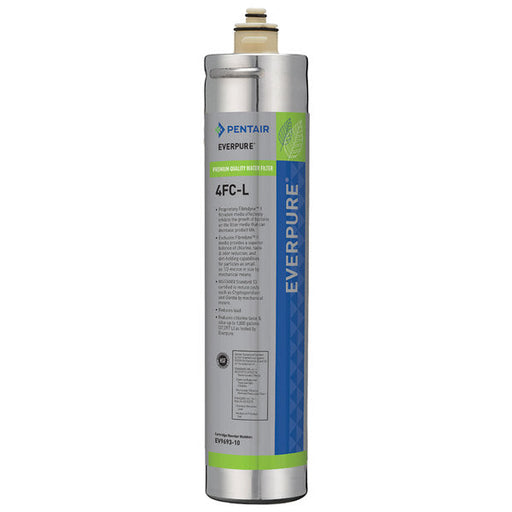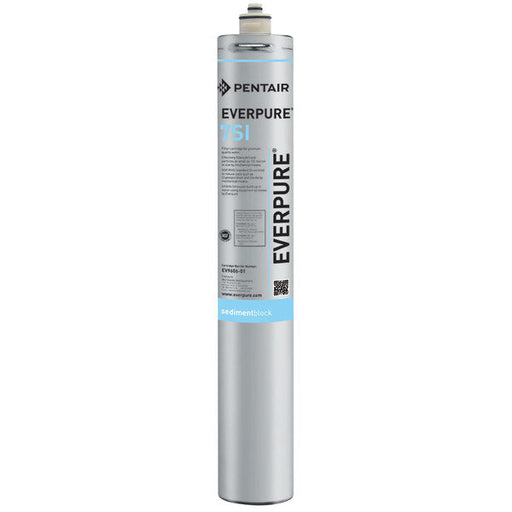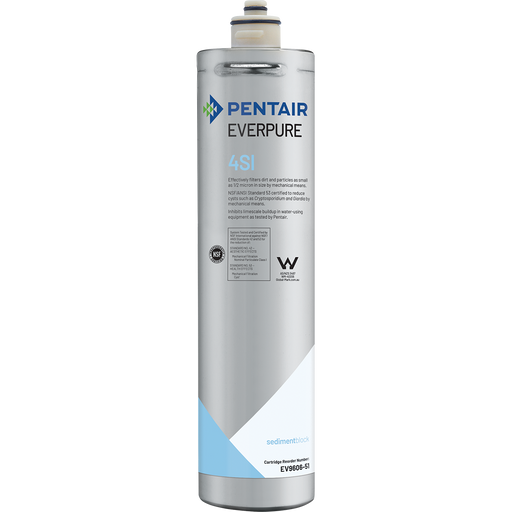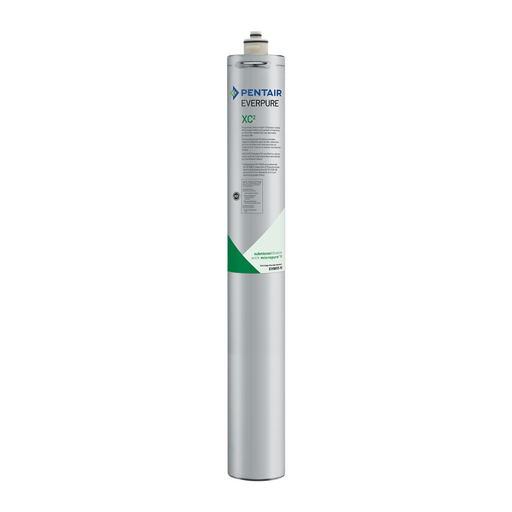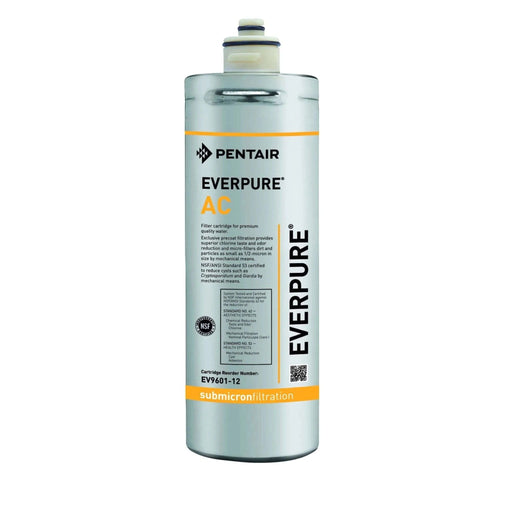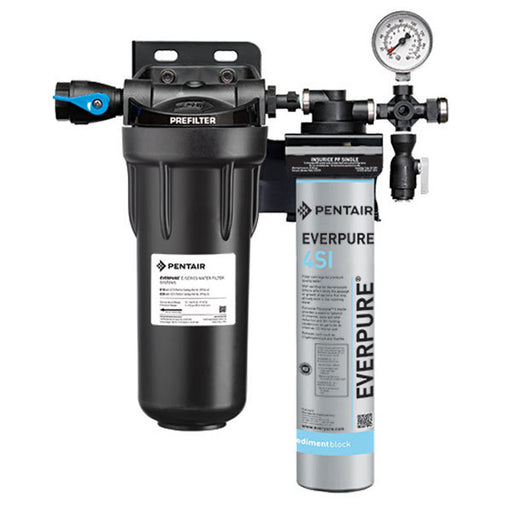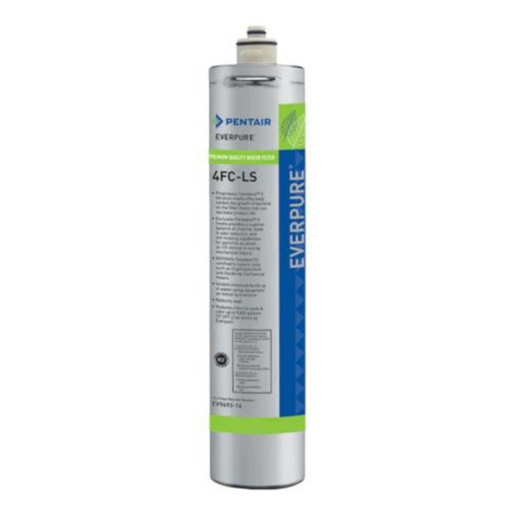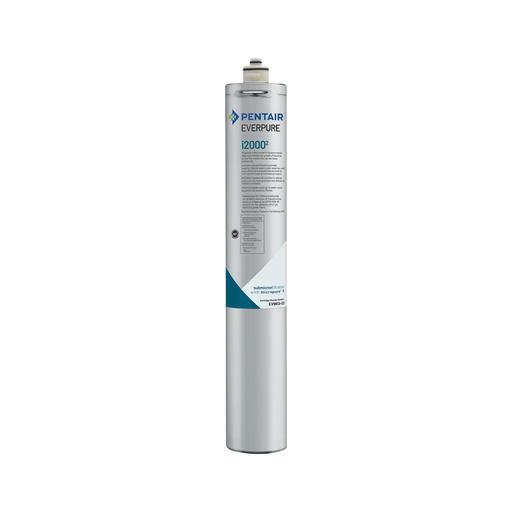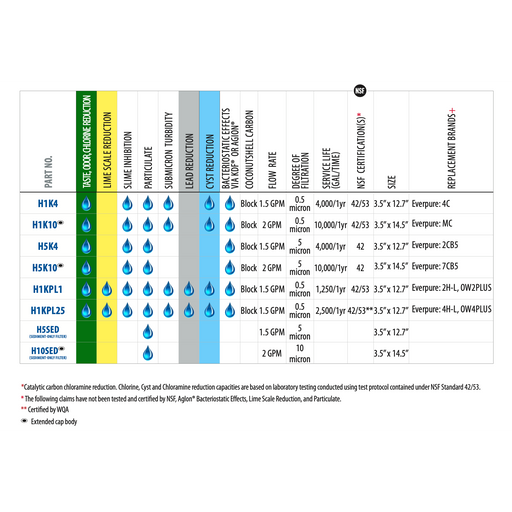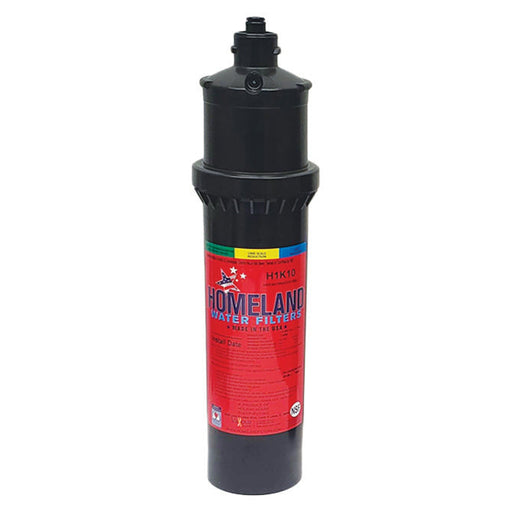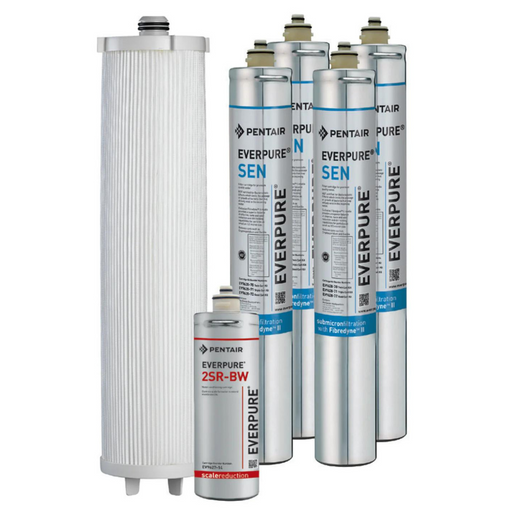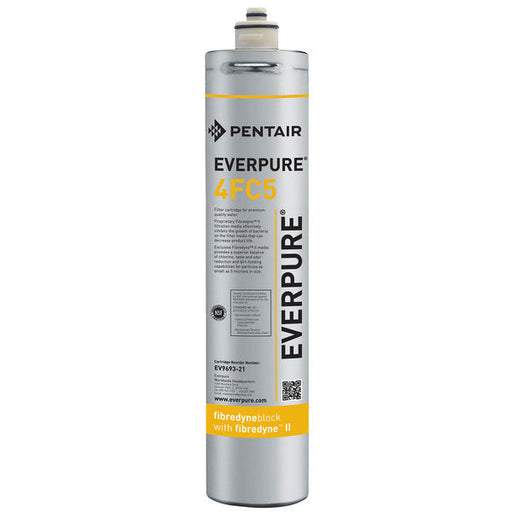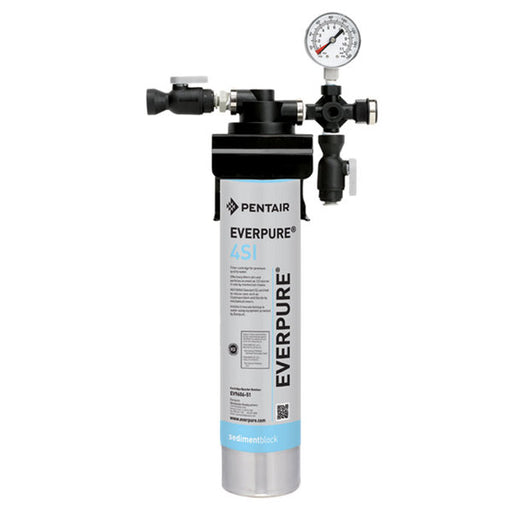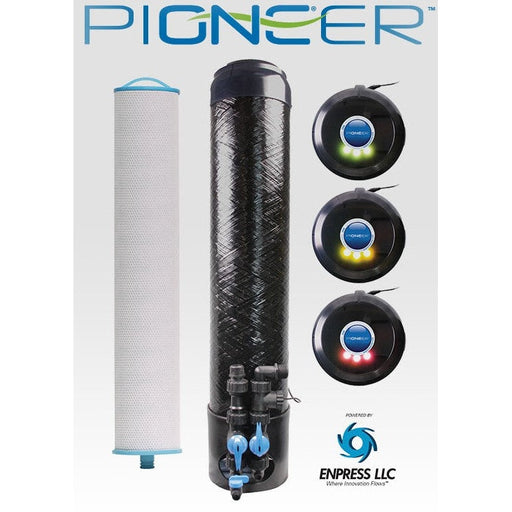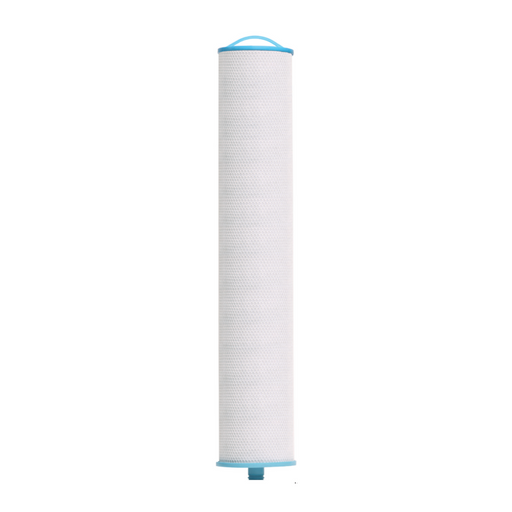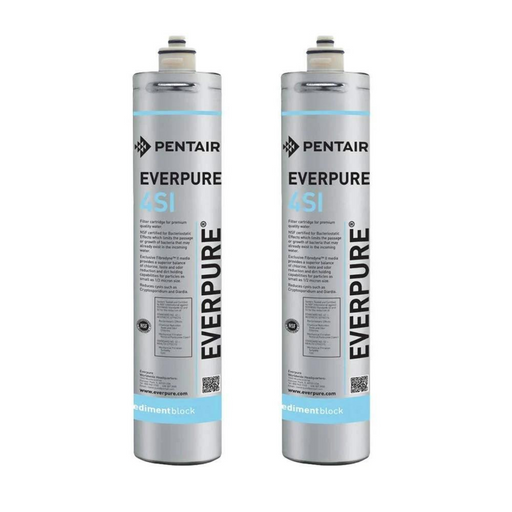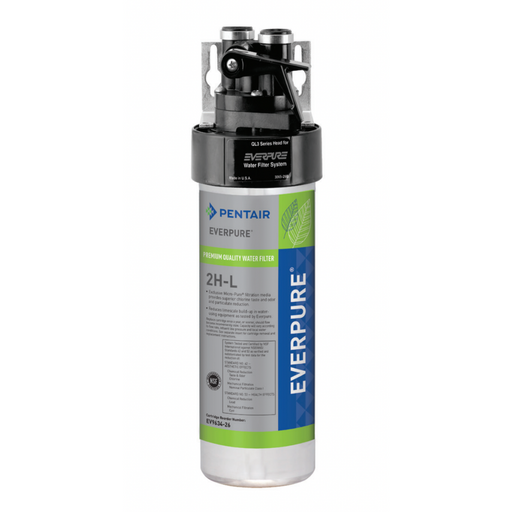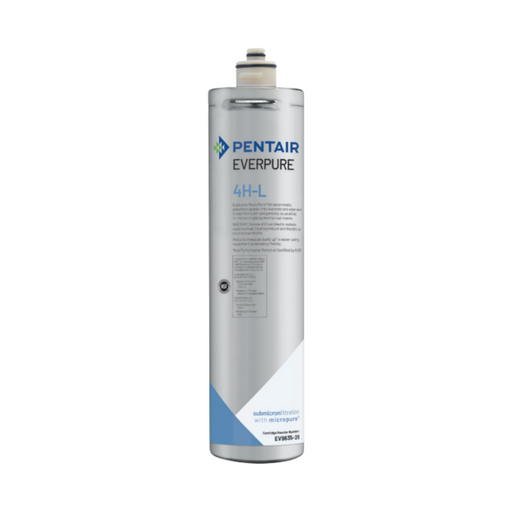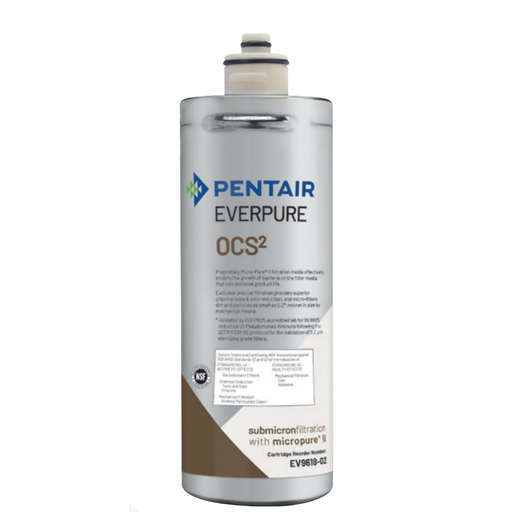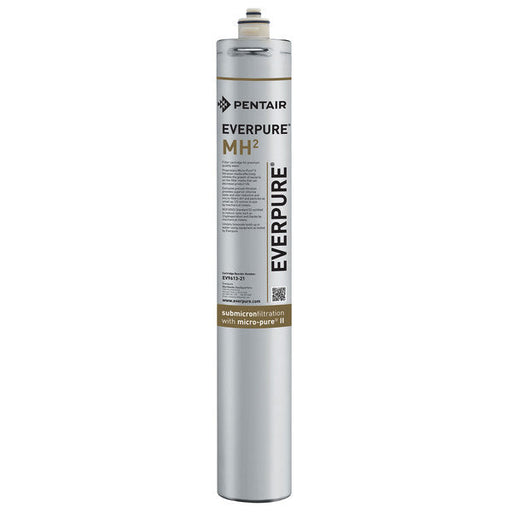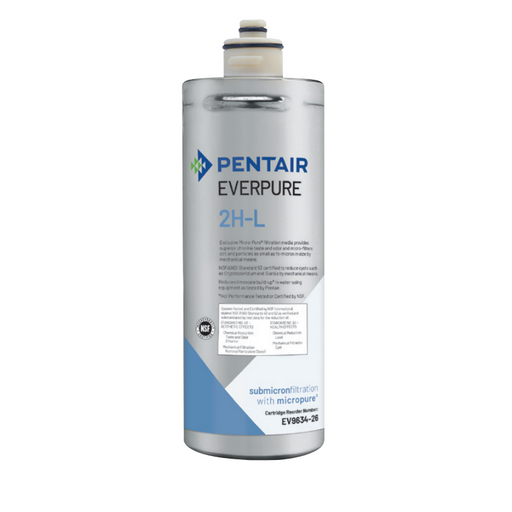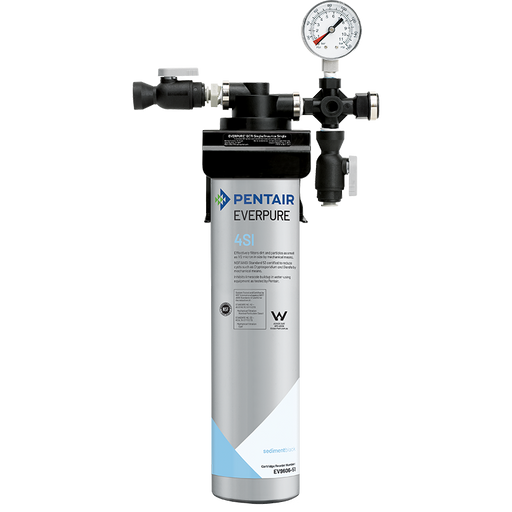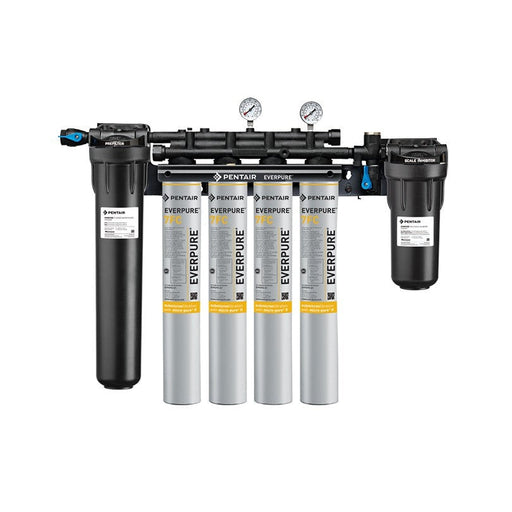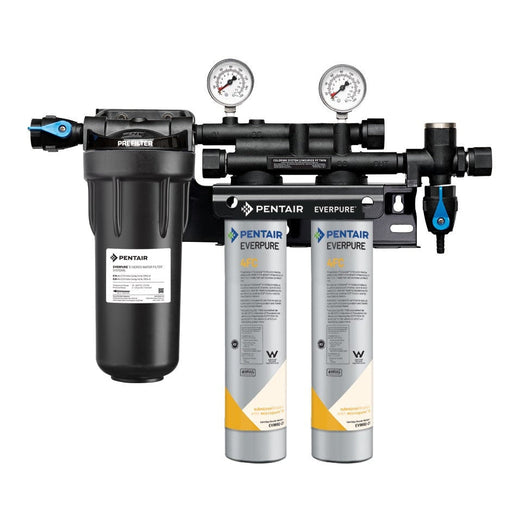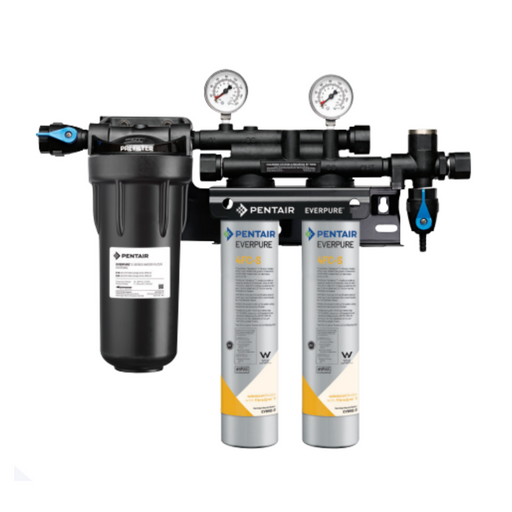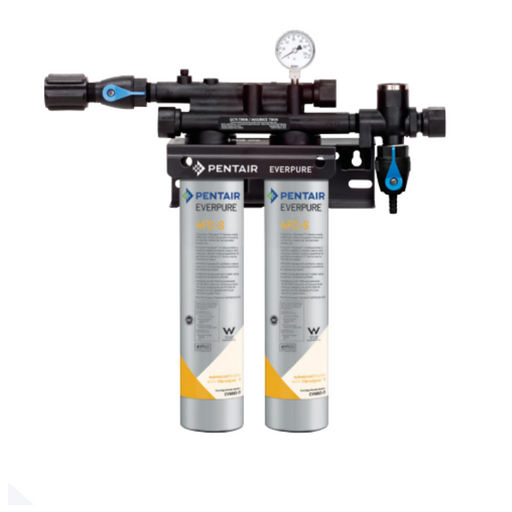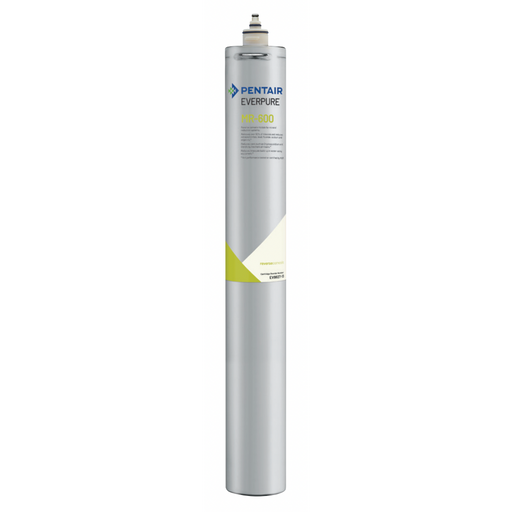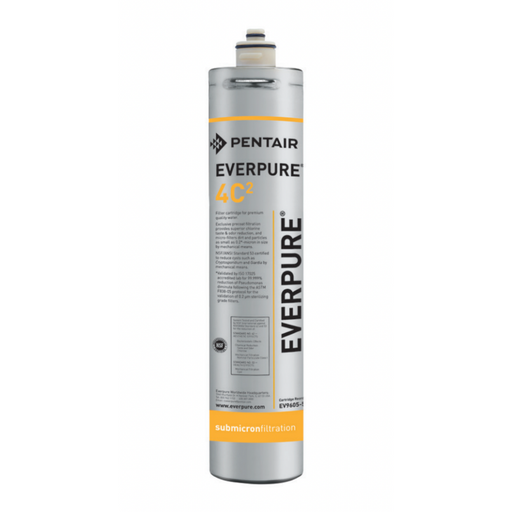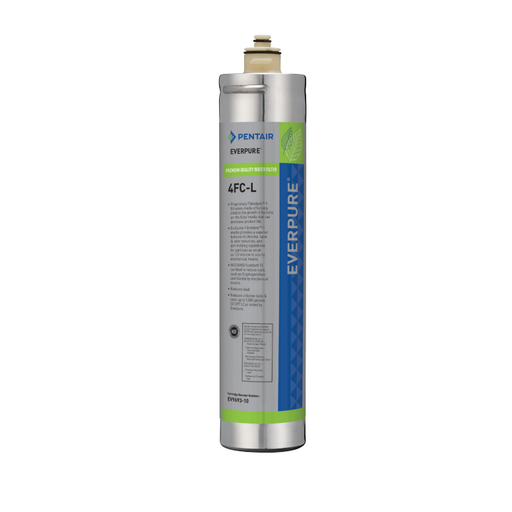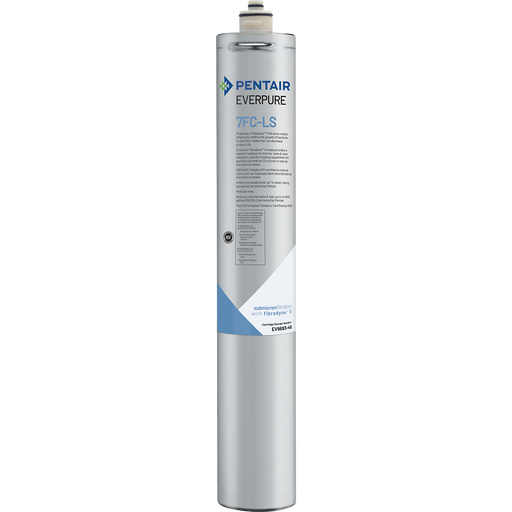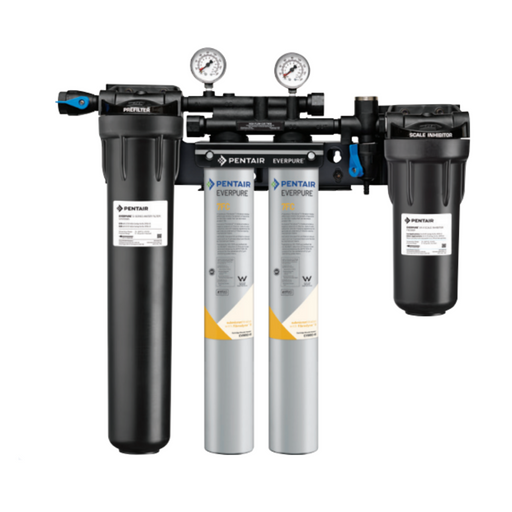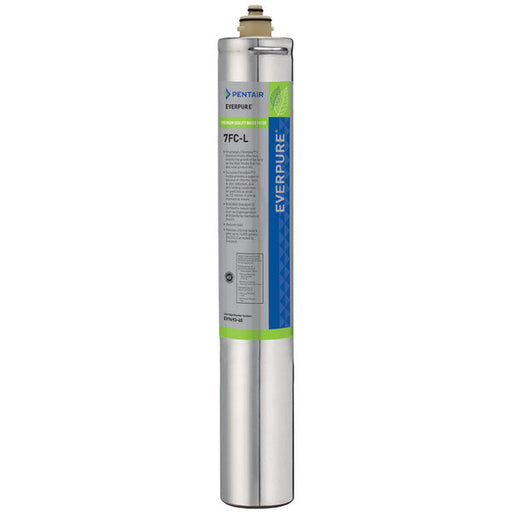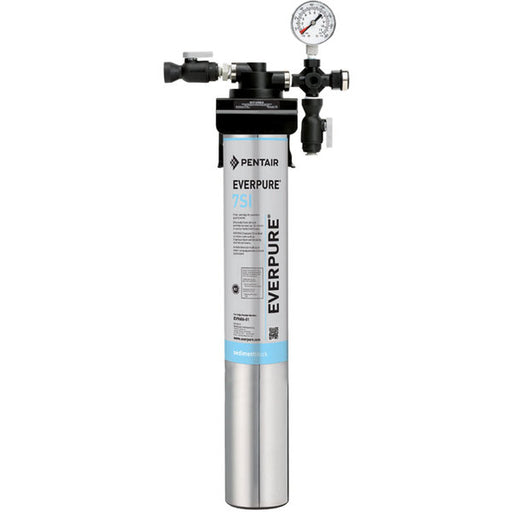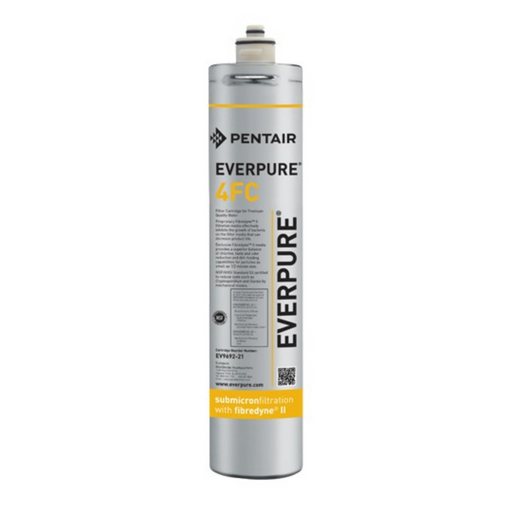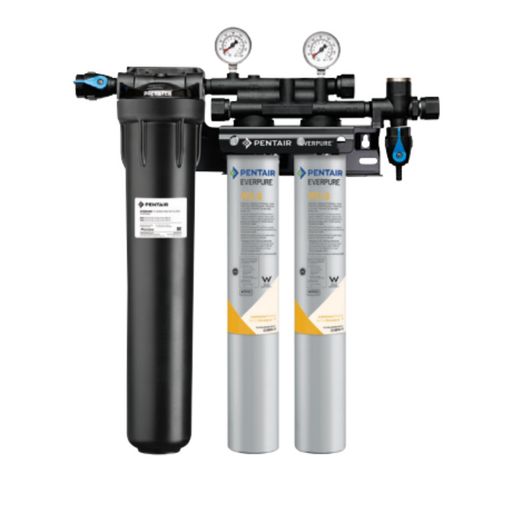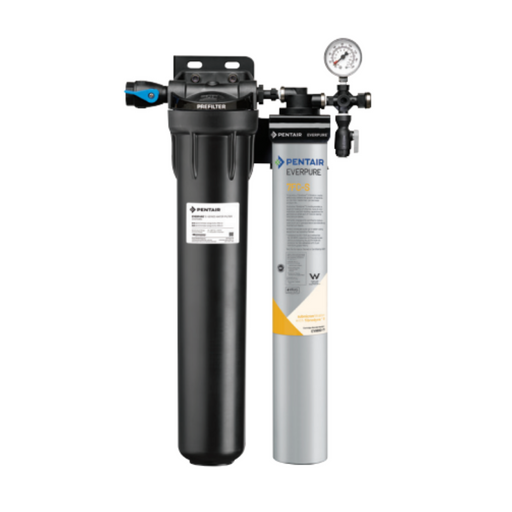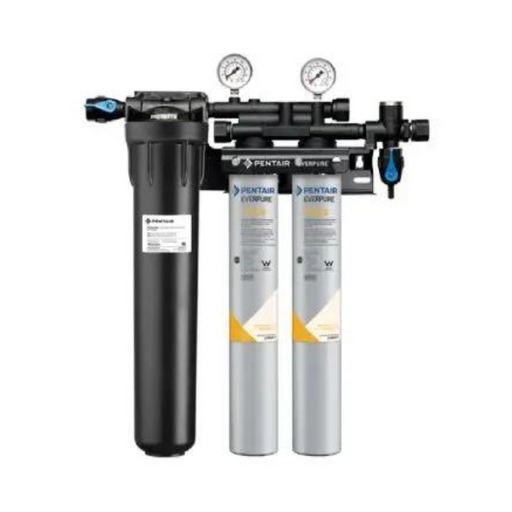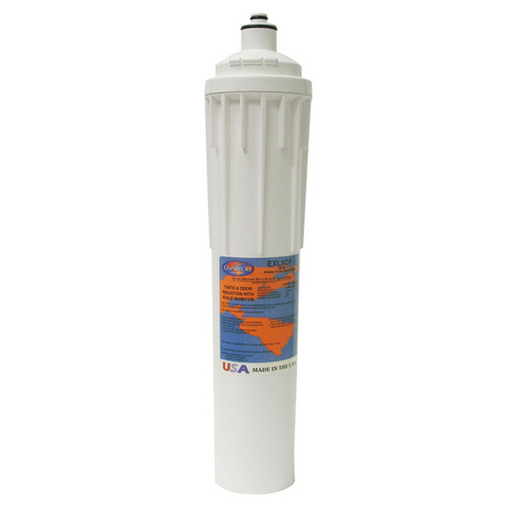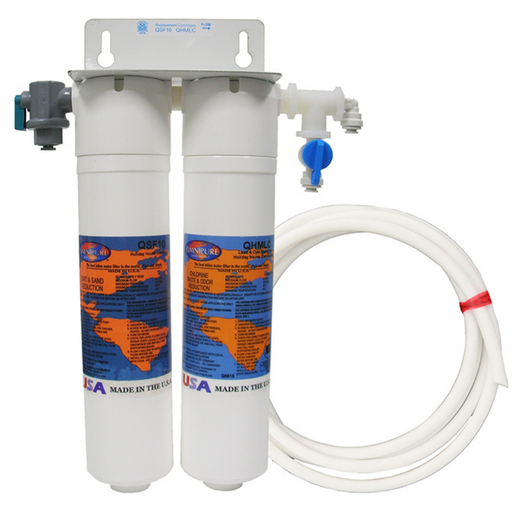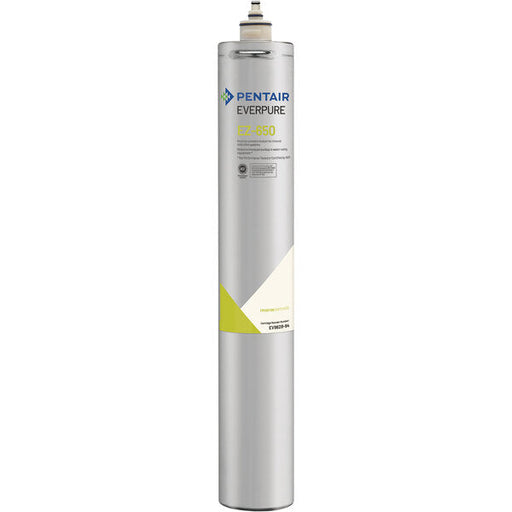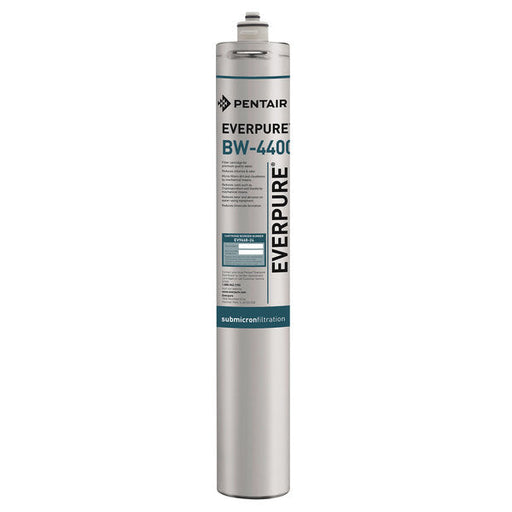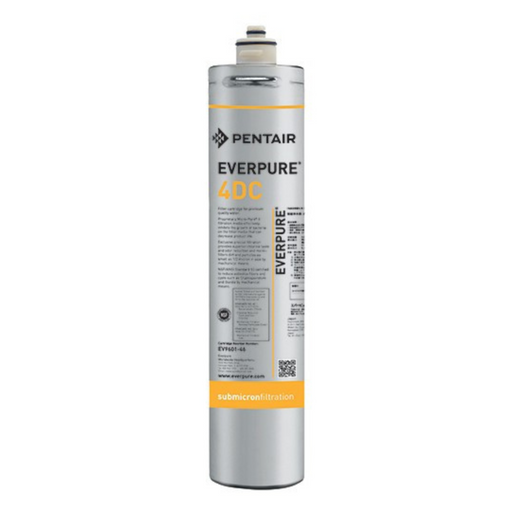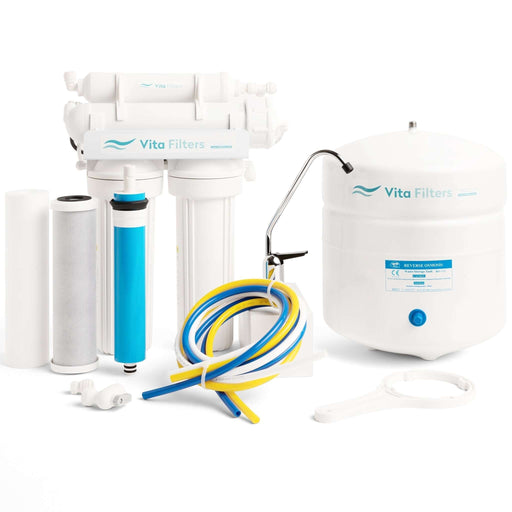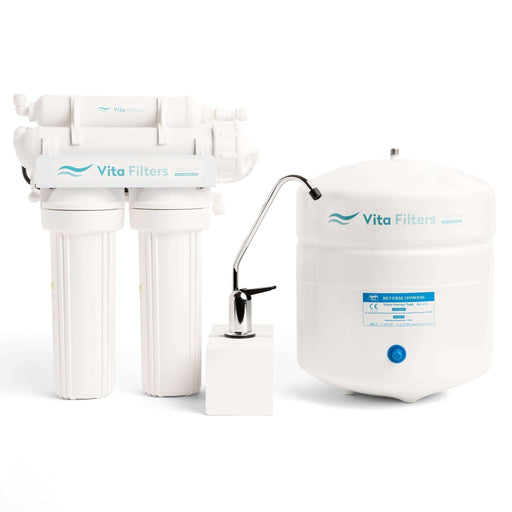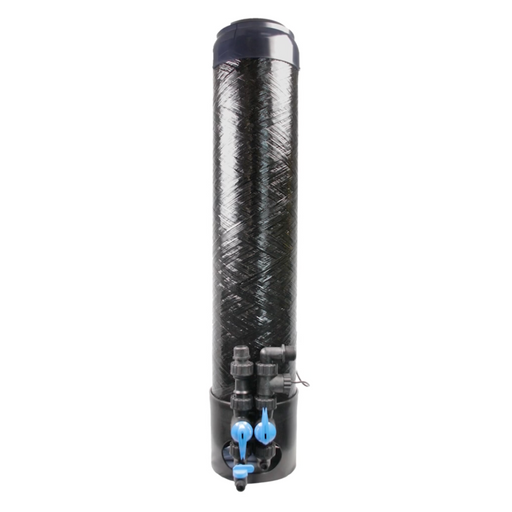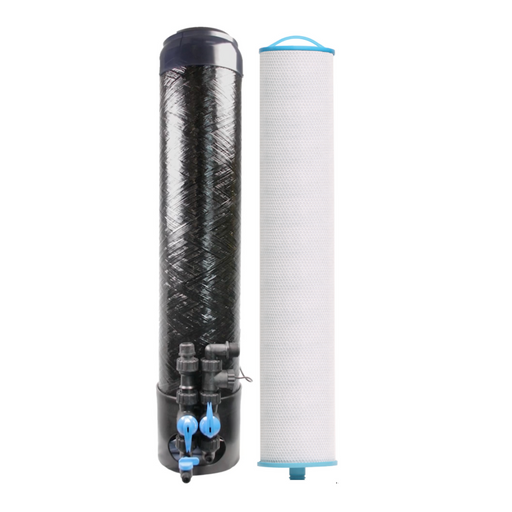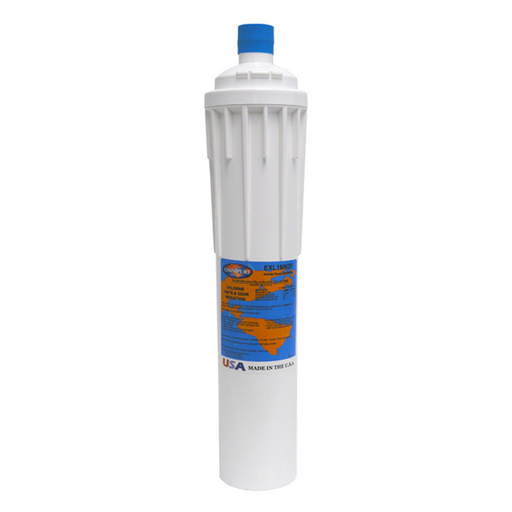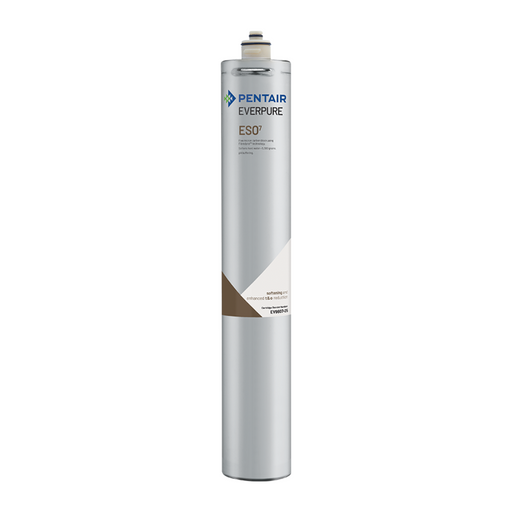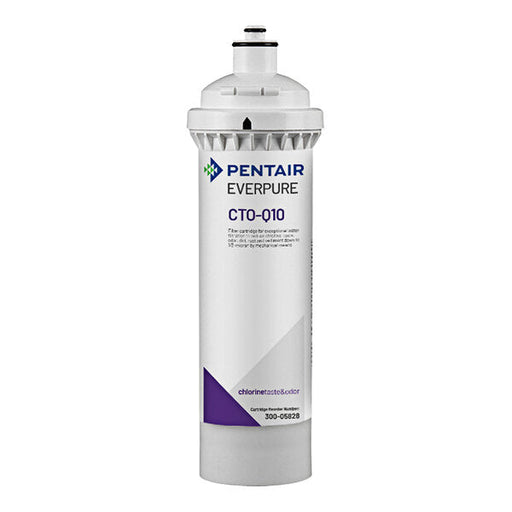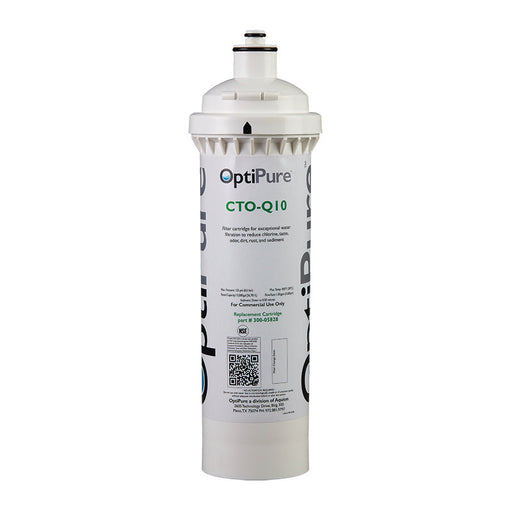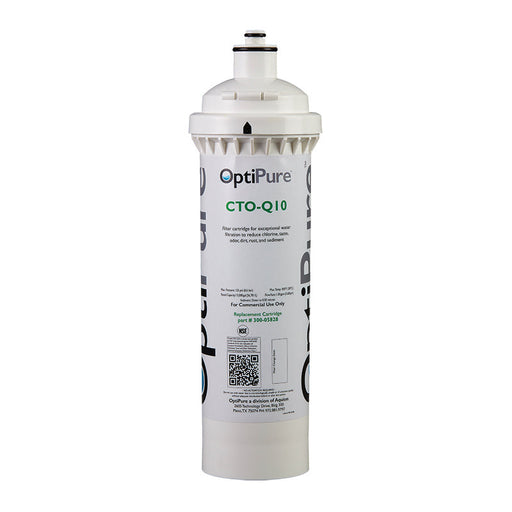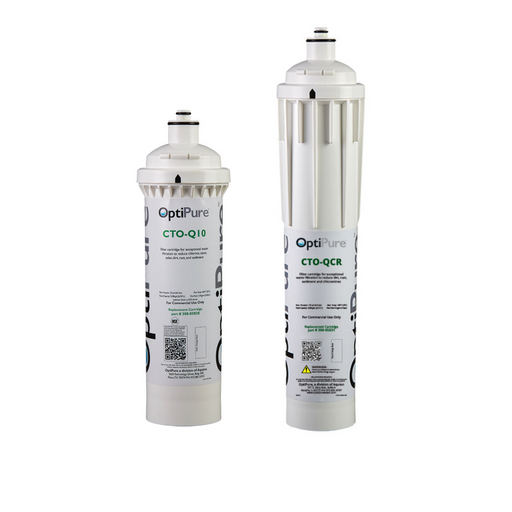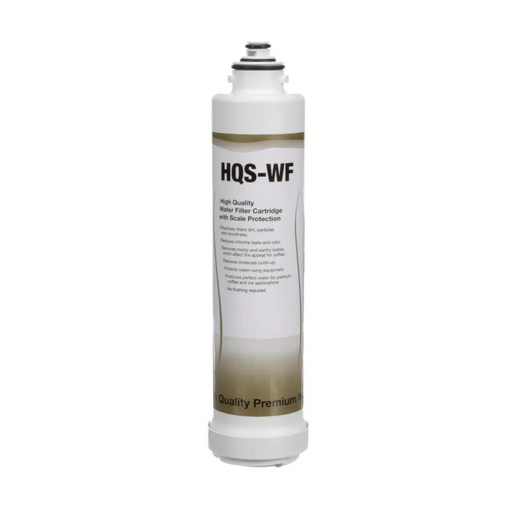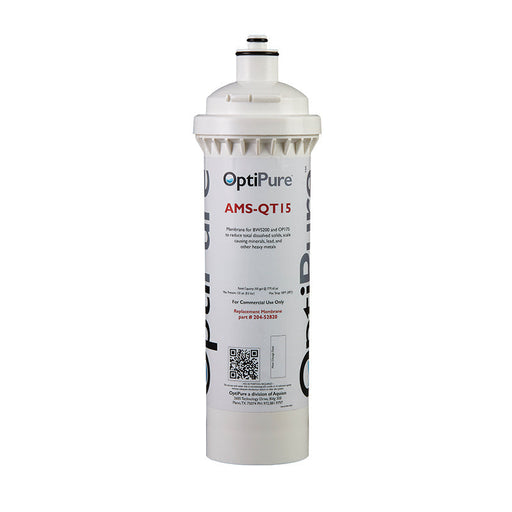Call or Text 303-736-9856
Filters
Everpure MC2 EV9612-56 Filter Cartridge
The Everpure MC² Filter Cartridge improves the taste of fountain beverages by reducing chlorine, taste, odor, and other offensive contaminants that...
View full detailsEverpure 4FC-L EV9693-10 Filter Cartridge
With high capacity, the extended-life filter offers submicron particulate reduction, lead, cyst, chlorine taste & odor protection, and more. Th...
View full detailsEverpure 7SI EV9606-01 Filter Cartridge SI (Ice)
Supply clean, safe water to your ice machine and increase efficiency with this Everpure EV9606-01 7SI replacement filter cartridge! This cartridge ...
View full detailsEverpure 4SI EV9606-51 Slime Reduction Filter Cartridge SI (Ice)
SEDIMENT FILTRATION (0.5 MICRON) FOR PREMIUM QUALITY WATER IN ICE APPLICATIONS. Supply clean, safe water to your ice machine and increase efficienc...
View full detailsEverpure XC2 EV9613-10 Replacement Filter Cartridge
Delivers premium quality water for fountain and combination applications. It improves the taste of fountain beverages and helps retain the drink's ...
View full detailsEverpure EV9601-12 AC Filter Cartridge
The Everpure AC EV9601-12 Filter finely polishes treated water to premium quality for drinking and cooking water applications. This cartridge utili...
View full detailsEverpure EV9324-61 Insurice PF-4SI Filtration System + Pre-Filter (Ice)
Specially designed for use with ice machines, the Everpure Insurice Single Prefilter - 4SI System offers dirt reduction, scale protection and reduc...
View full detailsEverpure 4FC-LS EV9693-16 Filter Cartridge + Scale Reduction
With high capacity, the extended-life filter offers submicron particulate reduction, lead, cyst, chlorine taste & odor protection, and more. Th...
View full detailsEverpure Insurice I20002 & I40002 Filter Cartridge (Ice)
The Pentair Everpure Insurice i2000 & i4000 replacement cartridges deliver premium water for ice machine applications. Prefilter reduces chlori...
View full detailsHomeland H1K10 High Quality Water Filter (Compatible with Everpure MC)
Why shop with Vita Filters? Authorized Homeland Distributor Free Shipping • No Minimum 12 Month Warranty 100% Satisfaction Guaranteed! On-Staff Wa...
View full detailsEverpure EV9628-72 Endurance High Flow Quad Cartridge Kit
Delivers Premium Quality Water for fountain and combination applications. Replacement Cartridge Kit For Everpure Endurance High Flow Quad System E...
View full detailsEverpure 4FC5 EV9693-21 Filter Cartridge 2.5 GPM
The Everpure 4FC5 Filter Cartridge provides clear, fresh, premium water for fountain beverages or combination systems. With increased capacity, the...
View full detailsEverpure EV9324-60 Insurice 4SI Filtration System (Ice)
Specially designed for ice machines, the Everpure Insurice Single - 4SI System offers dirt reduction, scale protection, and reduced slime, all in a...
View full detailsEnpress Pioneer CT-05-CB-AMCYL Whole House Lead Replacement Filter, 0.5 micron
Pioneer Whole House Lead Replacement Filter, 0.5 micron. This is for the replacement lead reduction cartridge only for the Pioneer Whole House lea...
View full detailsEverpure 4SI EV9606-51 Slime Reduction Filter Cartridge SI 2-Pack
Supply clean, safe water to your ice machine and increase efficiency with this Everpure EV9606-51 4SI replacement filter cartridge! This cartridge ...
View full detailsEverpure 2H-L EV9634-26 Filtration System (Drinking Water)
Unique activated carbon-based filter blend reduces chlorine taste & odor and other offensive contaminants—premium quality water for Office Wate...
View full detailsEverpure 4H-L EV9635-26 Filter Cartridge (Drinking Water)
Unique activated carbon-based filter blend reduces chlorine taste & odor and other offensive contaminants—premium quality water for Office Wate...
View full detailsEverpure OCS2 EV9618-02 Filter Cartridge (Coffee)
Specialty coffee has been the fastest-growing segment of the food service industry for the last several years. Various blends, flavored coffees, an...
View full detailsEverpure MH2 EV9613-21 Filter Cartridge 1.67 GPM (Coffee)
The Pentair Everpure EV961321 MH² Cartridge delivers premium quality water for coffee applications. Provides clear, fresh, premium quality ingredie...
View full detailsEverpure 2H-L EV9634-26 Filter Cartridge (Drinking Water)
The 2H-L replacement filter cartridge features exclusive Micropure™ II precoat technology that reduces Lead and filters to 0.5 microns and provides...
View full detailsEverpure Insurice 4SI Filtration System (Ice)
The Pentair Everpure Insurice 4Si filtration systems deliver cleaner, fresher water for ice applications. Effectively filters particulates to 0.5 m...
View full detailsEverpure EV9329-74 High Flow CSR Quad 7FC System + Pre-Filter (Combination)
Pentair Everpure High Flow CSR-FC Systems deliver premium quality water to high-flow fountain, coffee, and ice machine applications, increasing the...
View full detailsEverpure EV9328-32 QC7I PF Twin 4FC Filtration System + Pre-Filter (Fountain)
The QC7I PF Twin 4FC system delivers consistent quality water for fountain beverage applications. Chlorine & odor reduction, integrated prefilt...
View full detailsEverpure Quad MC2 EV9628-28 Cartridge Kit (10" Scale Stick)
Everpure Quad-MC2 Replacement Cartridge Kit is a convenient kit that features all necessary cartridges to service a High Flow CSR Quad combination ...
View full detailsEverpure EV9328-82 QC7I PF Twin 4FC-S Filtration System 5 GPM Pre-Filter
The QC7I PF Twin 4FCS EV932882 water filtration system features exclusive Fibredyne™ II bacteriostatic media that filters sediment down to 0.2 micr...
View full detailsEverpure EV9202-82 QC7I Twin 4FC-S Filtration System 5 GPM (Coffee)
The QC7I Twin 4FCS EV920282 water filtration system features exclusive Fibredyne™ II bacteriostatic media that filters sediment down to 0.2 micron*...
View full detailsOmnipure Keurig Coffee KQ8 Filter Cartridge
KEURIG KQ8 WATER FILTER The Omnipure KQ8 water filter provides taste, odor, chlorine, and scale reduction This water filter is designed for Keuri...
View full detailsEverpure MR-600 Membrane Cartridge EV9627-23
The MR-600 replacement membrane cartridge used with the MRS-600 series reverse osmosis (RO) systems reduces Total Dissolved Solids (TDS) with a pro...
View full detailsEverpure EV9605-50 4C2 Filter Cartridge
Provides clear, fresh, premium quality ingredient water for great-tasting cold beverages. Applications: Cold Cup Vending, Small Fountain Applicati...
View full detailsEverpure FC-L Lead Reduction Filter Cartridge
The Pentair Everpure FC-L lead reduction filter cartridges deliver water quality for fountain beverages, drinking water, and combination systems ap...
View full detailsEverpure EV9329-72 High Flow CSR Twin 7FC Filtration System (Combination)
The Everpure High Flow CSR Twin 7FC filtration system combines multiple treatment technologies in one system to serve the unique needs of different...
View full detailsEverpure 7FC-L EV9693-40 Filter Cartridge
The 7FC-L Cartridge offers increased capacity for extended chemical and mechanical contaminant reduction. It is a balanced cartridge for optimum pe...
View full detailsEverpure EV9324-70 Insurice 7SI Filtration System (Ice Machines)
The Everpure Insurice 7SI Single System EV9324-70 is a sediment filtration system specifically designed for ice applications. This system effective...
View full detailsEverpure 4FC EV9692-21 Filter Cartridge
The Everpure 4FC EV969221 Filter Cartridge provides clear, fresh, premium quality water for fountain beverages or combination systems. With increas...
View full detailsEverpure EV9328-92 QC7I PF Twin 7FC-S Filtration System 5 GPM Pre-Filter
The QC7I PF Twin 7FC-S EV932892 water filtration system features exclusive Fibredyne™ II bacteriostatic media that filters sediment down to 0.2 mic...
View full detailsEverpure EV9328-91 QC7I PF Single 7FC-S Filtration System 2.5 GPM Pre-Filter
The QC7I PF Single 7FCS EV932891 water filtration system features exclusive Fibredyne™ II bacteriostatic media that filters sediment down to 0.2 mi...
View full detailsEverpure EV9328-62 QC7I PF Twin 7FC5-S Filtration System 5 GPM Pre-Filter
The EV932862 QC7I PF Twin 7FC5S water filtration system features exclusive Fibredyne™ II bacteriostatic media that filters sediment down to 0.2 mic...
View full detailsOmnipure EXL1CP 15" Carbon Block Filter Cartridge (Everpure MH, I2000, I4000)
Applications: Coffee Machines, Coffee Makers, Ice Machines Compataible with Everpure MH, Everpure i2000, Everpure i4000 E XL Series Taste, odor, c...
View full detailsOmnipure UFS 10" Dual Water Cooler Filtration System (Cyst, Lead Reduction)
Omnipure UFS Dual POU Water Cooler System: This system is the ultimate when it comes to removing taste, odor, chlorine, cyst, and lead in point-of-...
View full detailsOmnipure HMLC 10" Drop-In Filter Cartridge (Heavy Metal, Lead, Cyst)
An excellent choice for taste, odor, chlorine, cyst, lead, and heavy metal reduction Service life: 1 year Filtration: 1 micron Chlorine, taste, ...
View full detailsOmnipure L10SS5 10" Filter Cartridge 5 Micron (Cyst)
OMNIPURE L10SS5 WATER FILTER Applications: Coffee, Espresso The Omnipure L10SS5 water filter is a 1-micron carbon block that protects against tas...
View full detailsEverpure EV9612-37 Insurice i40002 Filter Cartridge 6 Pack
The Pentair Everpure Insurice i2000 & i4000 replacement cartridges deliver premium water for ice machine applications. Prefilter reduces chlori...
View full detailsEverpure EV9628-94 EZ-650 Membrane Cartridge EZRO
The EZ-650 Replacement Membrane Cartridge used with the EZ-RO series reverse osmosis (RO) systems reduces Total Dissolved Solids (TDS) at a product...
View full detailsEverpure EV9668-24 BW 4400 Filter Cartridge
Supply clean, safe, great-tasting water to various water-using equipment with this Everpure EV966824 BW 4400 25" replacement filter cartridge! Comp...
View full detailsEverpure 4DC EV9601-46 Filter Cartridge (Drinking Water)
Provides clear, fresh, premium quality ingredient water for great-tasting cold beverages. Applications: Drinking Water, Water Coolers Provides cle...
View full detailsVita Filters 4-Stage Reverse Osmosis RO System (Drinking Water)
Why shop with Vita Filters? Authorized Distributor for Top Brands Free Shipping • No Minimum One (1) Year Warranty 100% Satisfaction Guaranteed! ...
View full detailsEnpress Pioneer Whole House Lead Reduction System, Cartridge Included
Pioneer Whole House Lead Reduction System, Cartridge Included The PIONEER™ POE filter is strategically designed to remove BOTH forms of lead contam...
View full detailsOmnipure EXPH 15" KDF Filter Cartridge (Everpure 7K-PLUS)
Applications: Ice Machines, Coffee Brewers Compatible with 7KPLUS Provides all the benefits of precoat filters, including dirt, bad taste and odor...
View full detailsBest Sellers
Everpure ESO7 EV9607-25 Espresso Water Filter Cartridge 1.0 GPM 5,300 Grains
The Everpure ESO 7 EV960725 Cartridge has a unique three-stage blending process to provide softened, buffered, filtered water for specialty coffee,...
View full detailsOptiPure 300-05828 CTO-Q10 Replacement Cartridge 1.5 GPM 0.5 Micron
The Pentair OptiPure CTO-Q10 is a 10” Qwik-Twist cartridge for use in OptiPure QT10 Series Systems to reduce sediment down to 0.5-microns and reduc...
View full detailsOptiPure 170-52081 QTI1+CR Replacement Cartridge Kit CTO-Q10 CTOS-QCR
The CTO-Q10 is a 10” Qwik-Twist cartridge that reduces sediment down to 0.5 microns and reduces chlorine, taste & odor at a flow rate of 1.5 GP...
View full detailsEverpure DEV9830-01 HQS-WF Filter Cartridge
Application: Produces perfect water for premium drinking water applications. Fits Everpure QL1 and QL3b heads. Part of a sanitary quick-change fil...
View full detailsOptiPure 204-52820 AMS-QT15 Reverse Osmosis RO Membrane
The AMS-QT15 is a 10″ Qwik-Twist replacement membrane for BWS200 and OP175 systems that reduces Total Dissolved Solids (TDS), scale-causing mineral...
View full detailsCyst Reduction Water Filters
Cysts, such as Cryptosporidium and Giardia, are protozoan parasites found in the intestinal tracts of animals. The feces of infected animals contaminate surface waters such as lakes, streams, ponds, shallow wells, and groundwater under the influence of surface water (GUDI). For more information, read A Guide to Filtering Water from the CDC.
Cysts are tiny, microscopic organisms commonly found in contaminated water sources. Some well-known cysts include Giardia and Cryptosporidium, which can cause gastrointestinal illnesses when ingested.
Cyst-reduction water filters can remove these microscopic pathogens, making the water safe for consumption. These filters typically use various technologies to achieve this, such as:
- Mechanical Filtration: The filter uses a physical barrier with tiny pores that trap cysts as water passes through.
- Adsorption: Certain filter media, such as activated carbon, can adsorb cysts, effectively removing them from the water.
- Chemical Disinfection: Some filters may incorporate elements that release disinfectants like iodine or chlorine, which can help neutralize cysts.
Not all water filters are designed to remove cysts, so if cyst reduction is a concern, choose a filter that explicitly mentions this capability on its packaging or product description.


